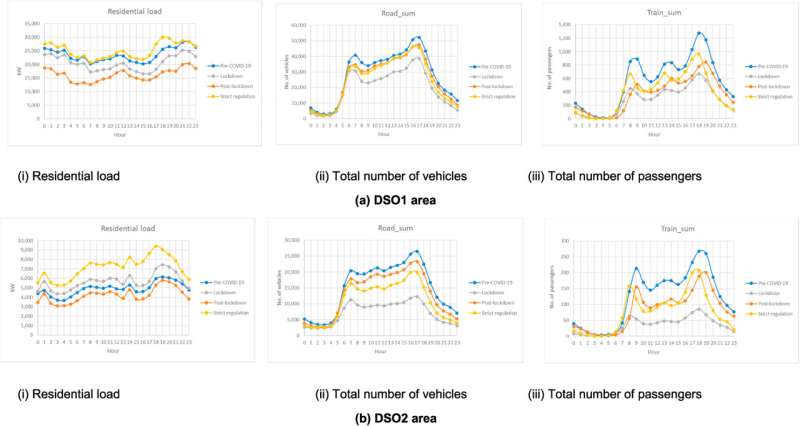This article has been reviewed according to Science X's editorial process and policies. Editors have highlighted the following attributes while ensuring the content's credibility:
fact-checked
trusted source
proofread
Artificial intelligence can predict electricity grid loads from road and rail usage data

To satisfy demand and manage consumption peaks, electricity suppliers have to be able to predict grid loads. A team of scientists from Zurich University of Applied Sciences has developed an artificial intelligence system capable of accurately anticipating grid loads from road and rail traffic data. The results have been published in Energy Strategy Reviews.
Electricity distributors use predictive models to deal more effectively with climate change, the energy crisis and fluctuations in the solar and wind energy that account for a growing proportion of our electricity. The models are based primarily on consumption histories—in other words, grid loads are predicted on the basis of past actions one hour, one day or one year ago. The models also incorporate other data such as weather forecasts, which determine demand for heating and air conditioning and thus for electricity.
Forecasts two to six hours in advance
As part of a research project conducted in Ticino and Aargau, scientists input electricity consumption and weather data into an artificial intelligence model along with data on road traffic levels and rail passenger numbers. They knew that movements correlate very closely to activities—leisure, work, time spent at home or outdoors.
And that these activities correlate in turn with electricity consumption. The scientists therefore set out to determine whether artificial intelligence could uncover links between these findings. Indeed, it has made short-term predictions possible: the model was able to predict the upturn in domestic electricity consumption two to six hours before it happened.
Electric mobility even more striking
The scientists also attempted to supplement traditional consumption history-based models by adding their traffic data. However, doing so only increases the quality of the predictions marginally. According to the scientists, traffic data is a particularly useful replacement for consumption histories if these are not available or when histories lose their predictive power, as occurs in certain exceptional situations such as a pandemic or natural disaster.
However, Aksornchan Chaianong, study leader and research associate at Zurich University of Applied Sciences' Center for Energy and the Environment, feels the growth in electric mobility could provide the most important potential for the new model. "As the number of electric vehicles grows, the link between traffic and electricity demand will become closer. That means traffic data is likely to become even more important in predicting electricity consumption."
More information: Aksornchan Chaianong et al, Impacts of traffic data on short-term residential load forecasting before and during the COVID-19 pandemic, Energy Strategy Reviews (2022). DOI: 10.1016/j.esr.2022.100895

















